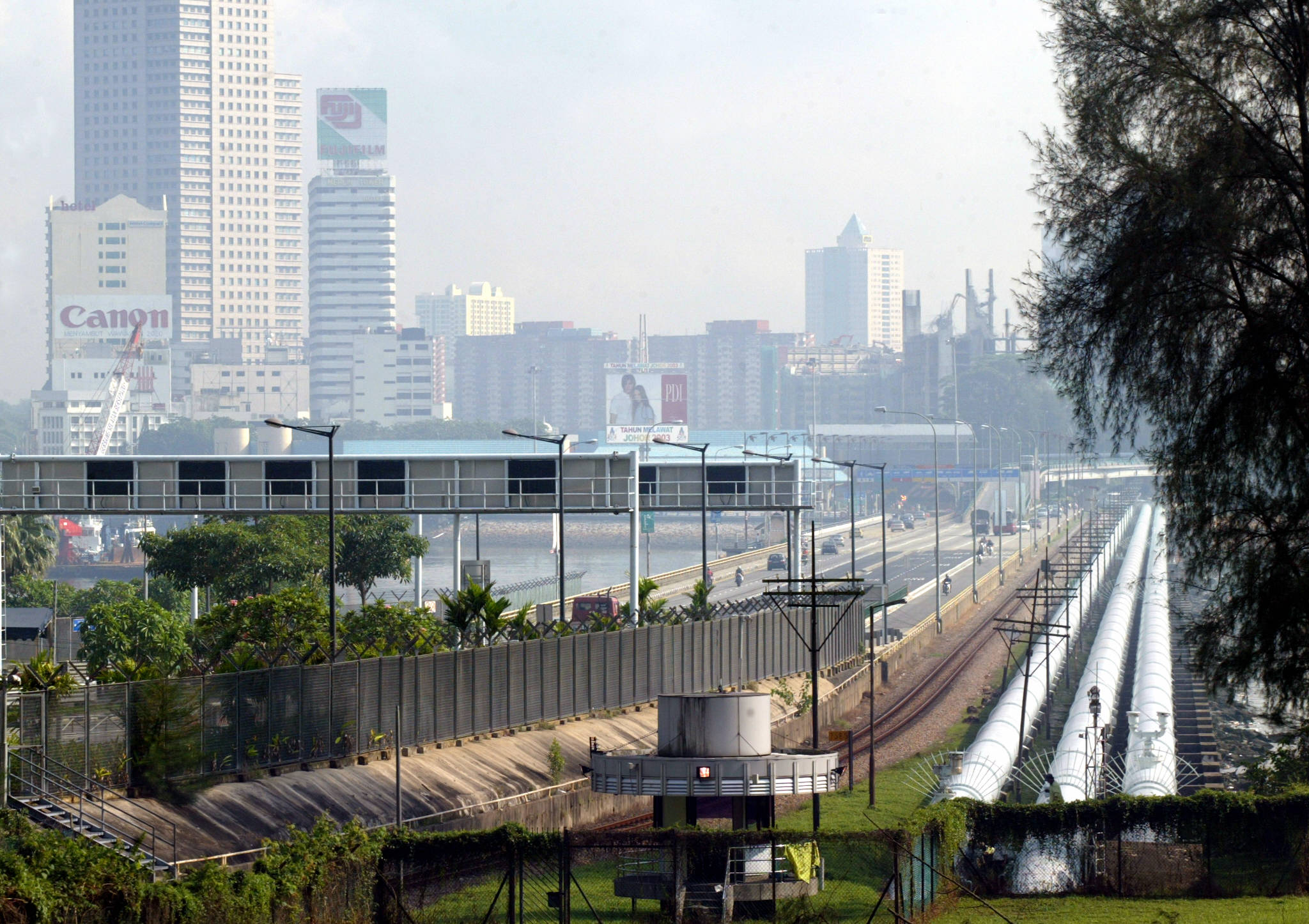Water pipelines (R) run across the causeway between Singapore and Southern state of Johor Bahru (background), July 15, 2003. (AFP Photo/Roslan Rahman)
The membrane technologies market in water and wastewater treatment in Southeast Asia is expected to grow to US$590.5 million by 2021, at a compound annual growth rate of 10.9%, according to Frost & Sullivan’s energy and environment team.
It said Indonesia, Vietnam and the Philippines will be the largest revenue contributors in the long term, due to largely under-developed water sector and strong regulatory support for new projects.
The current value of the market is US$351.4 million.
Frost & Sullivan said the region-wide focus on cleaner water and wastewater in Southeast Asia has accelerated the pace of innovation in the membrane technologies market.
It said traditional technologies like micro-filtration (MF) and ultra-filtration (UF) will give way to newer membranes with increased durability and greater application diversity as well as novel membrane processes such as forward-osmosis (FO).
“Investing in frontier markets such as Vietnam and the Philippines is a high-risk, high-reward proposition that creates significant opportunities for partnerships with entrenched regional players,” said Frost & Sullivan Energy and Environment research analyst Hari Raamanathan.
Meanwhile, he said the industrial segment is emerging as a key end-user market, encouraging membrane technology companies to develop core capabilities and expertise in targeted client segments.
He said while the Southeast Asian market is ripe for growth, the nascence of its membrane technologies and its highly fragmented nature leaves it vulnerable to competition from market leaders like Japan and Europe.
Furthermore, he said compared to the conventional forms of wastewater treatments, the capital and maintenance costs of membrane-based systems are higher.
“The underfunded utilities in the frontier nations will be receptive to membrane manufacturers that can deliver end-to-end solutions through ‘build-own-operate-transfer’ or ‘design-build-finance-operate’ contracts,” he said.
He said the most successful participants will be the ones that develop capabilities across both the municipal and industrial verticals as urbanisation and industrialisation in Southeast Asia are creating a highly fertile market.
